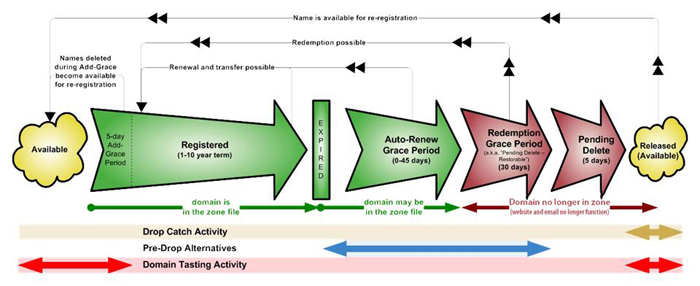
Purchasing A Domain in 2025 — Enshitiffication
This blog is primarily about my experience with acquiring kavi.sh
Acquiring a domain has been a solved problem for several years now. You go to Namecheap.com, type in what you want, and if it’s available you can have it for around $15/year.
All is good while you stay on this happy path. As soon as you want a domain remotely desirable, you fall into this rabbit hole of domain squatting, reverse auctions, and a general enshitiffication of the process.
Recently, I went about trying to acquire my namesake domain, kavi.sh. I was determined to acquire it after five years of regret from not doing so when it was last up for sale. This was compounded by the fact that if the right person acquires it, they would sit on it forever.
I’m sure this is a feeling common to many others who are trying to get that perfect domain for their business or blog and is exactly what the registries and registrars exploit.
Domain squatting has been an issue for as long as my Gen Z brain remembers and is nothing new. A random “entrepreneur” will purchase a large number of desirable domains, do nothing but sell them for a huge markup if you reach out. I’m sure this business model is successful given the high number of competitors thriving in this space and the fact that it has existed for so long. I also know it’s lucrative because certain litigious registrars, who I won’t name for legal reasons, take part in it. If the domain is short or uses common words, you can expect this to be the case. If you also show any signs of interest in a domain, this is often the case. This includes looking up a domain’s availability, WHOIS, or contacting the owner through some of these service providers and suddenly the domain gets marked as premium and is not eligible at the usual price or gets squatted.
A simple way to combat this has been to just wait for the squatter to lose interest and then snipe the domain using a drop catching service.
Now, I approximately knew all of the above and what to expect but I found that this goes way deeper than I expected.
I had been keeping an eye on the domain for years now, occasionally checking the WHOIS information and setting a calendar reminder around its expiry. Once I found out that it had not been renewed and its grace period was about to lapse, I began to check daily while figuring out my drop catching options. I primarily used Namecheap for my lookups since I knew that using a less reputable provider would result in it being squatted again.
While trying to drop catch a .sh domain, I learnt that most of the reputed providers do not support it. I found park.io (not sponsored) as my only option. If others exist I wasn’t able to find any. Snapnames does exist but largely didn’t work in my experience.

As the days went by, I expected to see it get released and caught as per ICANN’s lifecycle and data points for similar domains but was largely surprised when this wasn’t the case. I reached out to the support email at park.io to better understand this and learnt that my domain was selected as a premium domain by the .sh registry (NOT any registrar service)!
There was basically no information online about this for .sh domains and most of what I learnt was through them and my experience. This meant that the domain does not drop immediately and goes through a reverse auction process. This whole process seems to be administered by Identity Digital.
Now this was odd because there were similar domains that dropped directly. I suspect that it was because it received hits on the WHOIS records.

Soon after, the WHOIS records no longer showed any useful information but mentioned that it was in the Identity Digital dropzone. There was no information about how many people are interested, what was the current price or what the timeline for price drops or general availability would be. All I could do was put in my bid at park.io (who also expressed frustration about these points) and trust the process.
I ended up getting into my own head, increasing my bid over a few days while being stuck with no information and spending way too much on a domain nobody else was probably interested in.
I get that TLDs can be a not insignificant income for island nations [1, 2] but largely think that this process is purposely opaque and manipulative. They could do Second-price auctions like ads if multiple people are interested or hike up the price for all of their domains. Individually exploiting data points to maximize profit is true enshitiffication of the domain registration process.
I realize this conclusion is somewhat rich coming from someone who does Data Science for a living. I guess this is what being at the other end of some analytics team’s KPIs feels like.
